Quirino Mejia arrived in Michigan in March with plans for a healthy life outdoors caring for crops on a Conklin farm.
Instead, the 65-year-old farmworker has spent more than a month in the Spectrum Health Blodgett Hospital progressive care unit, suffering from COVID-19.
Mejia is far from his family, and like all patients who have COVID-19, is not allowed to have visitors. It’s been a lonely month for the Spanish-speaking Florida resident.
He struggled to breathe. He listened to caregivers and providers speak in a language he does not understand.
Speaking through a Spectrum Health interpreter, Mejia said he first noticed something was off with his health in late July, when he could no longer taste his food.
“The other symptom I had was I felt heat inside of my body,” Mejia said. “I didn’t have a fever, I just felt heat inside. Then I started having a little cough.”
The little cough morphed into a major cough. He struggled to breathe.
He battled the symptoms for several days. He wanted to finish out the workweek.
But when he tried to take a shower after a day on the farm, the warm, moist air made him feel like he was suffocating.
Long road to recovery
On Saturday, Aug. 1, when his symptoms worsened, he visited the Spectrum Health Butterworth Hospital emergency department, where he tested positive for the virus that causes COVID-19.
Mejia has no idea how or where he contracted it. He worked outdoors, not in close proximity to others.
“I was just at the farm, which is among the trees,” he said. “The farmer was growing apples so we were covering the whole farm with the machines. Pretty much we were preparing everything for harvest.”
From the emergency department, Mejia was transferred to Blodgett Hospital.
“I was coughing so hard I was losing my breath,” he recalled. “It is important for other people to know about this because I didn’t even believe this illness existed. I thought it would go away, but it didn’t. It scared me a lot.”
Mejia remains on oxygen after several weeks and feels frustrated because he is unable to walk the short distance to the bathroom on his own. His body has been weakened by the virus. Mejia also encountered a recent setback when his oxygen levels dropped sharply after an attempted shower.
“I can’t even tell the whole thing because I get agitated,” Mejia said of dealing with the virus. “I cannot make it on my own yet.”
Mejia is encouraged, however, that day by day, he’s slowly recovering.
“When I was admitted here I had a lot of coughing and it’s been decreasing little by little,” he said. “I still have it now, but it is mild.”
Mejia plans to return to Florida after leaving the hospital. He looks forward to a reunion with his grown children.
Communicating through COVID
Early on in Mejia’s stay, Blodgett progressive care nurse Asia Mulrain, RN, began to care for him because she is from the Dominican Republic and speaks fluent Spanish and English.
Progressive care unit nurse manager Audra Nelson-Arnett said she thinks having Mulrain speak a familiar language helped calm Mejia.
“This was extremely helpful,” Nelson-Arnett said. “Imagine being in a hospital, with a pandemic virus, not allowed to have visitors, and not being able to converse with the staff taking care of you or understand the language being spoken around you. How extremely scary this would be. I would imagine that a Spanish-speaking nurse would make a world of difference.”
Mulrain’s fluency in Spanish has allowed her to share many non-medical, “get-to-know-you” conversations with Mejia and other Spanish-speaking patients who have COVID-19. She’s able to have the kind of casual, friendly conversations that happen during regular nursing interactions.
“For some people, it’s real quick—you’re in the hospital, then you recover at home,” Mulrain said. “But there are patients like him (whose medical situations) have become a bit more challenging. He’s kind of lonely in his room. You get lonely. You need people.”
Mulrain said she can relate. She had a close family member battle the virus.
She said after almost six months of working with patients who have COVID-19, there’s still an uneasy feeling.
“When everything started hitting, you’d hear about things around the world and in New York City and we wondered what was going to happen here,” Mulrain said. “Just the ‘not knowing’ is hard. Most things, you know there’s a potential outcome or treatment. Just not knowing where you’re going makes you a little uneasy. For a while, it got very challenging with so many people getting sick. That’s slowed down quite a bit.”
Mejia said he’s grateful for Mulrain and the rest of the Blodgett Hospital staff. He encourages others to remain on guard about the dangers of COVID-19.
He longs to return home to his family, but for now, the hospital is his home. And he hopes no one else has to move in.
“Do not ignore the warnings from people who know about this—like the doctors or the people who have had the sickness—because this is not a game,” Mejia said. “I hope they find a vaccination soon so there won’t be so much mortality. When you go to the hospital like I did, you don’t know if you’ll make it out alive. But I do feel better the last few days. I have improved a lot.”
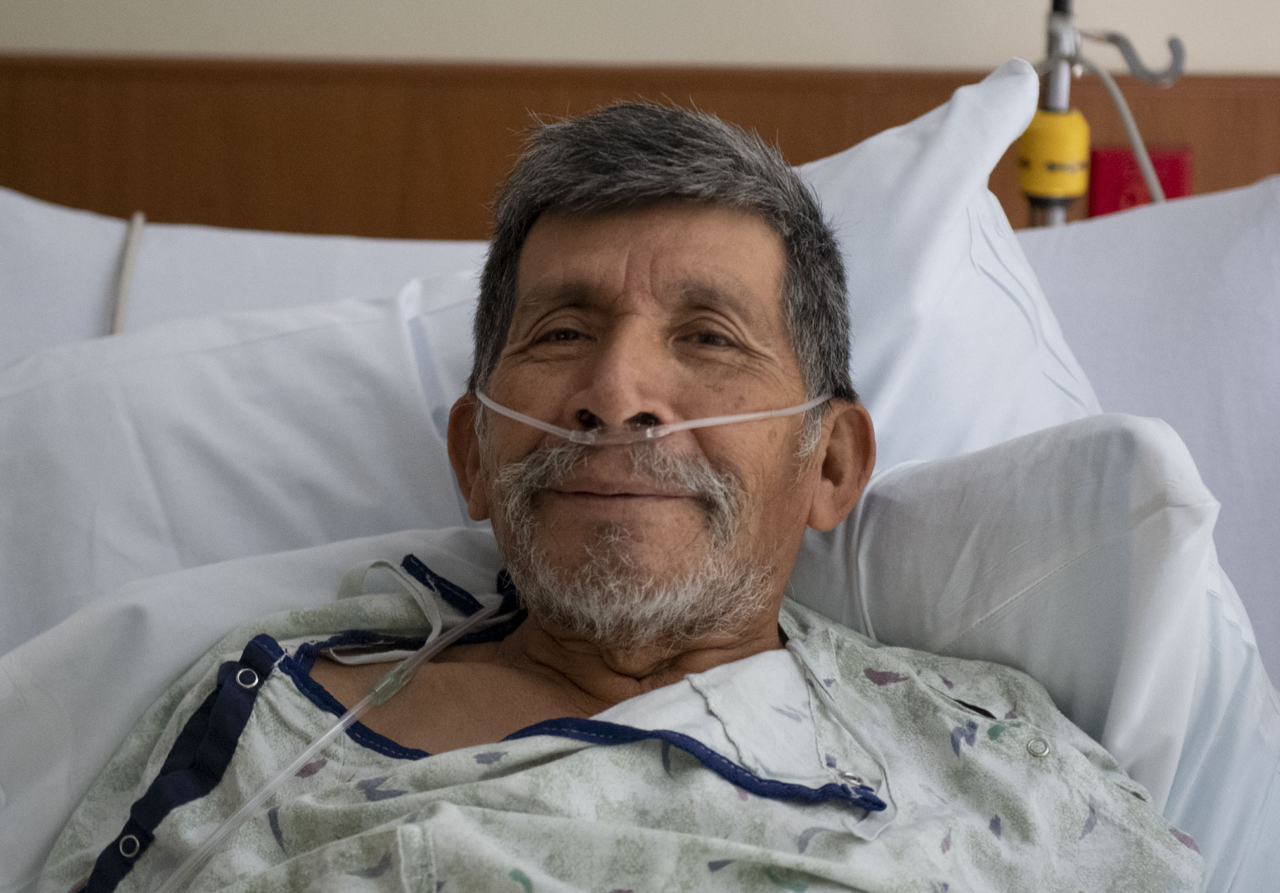
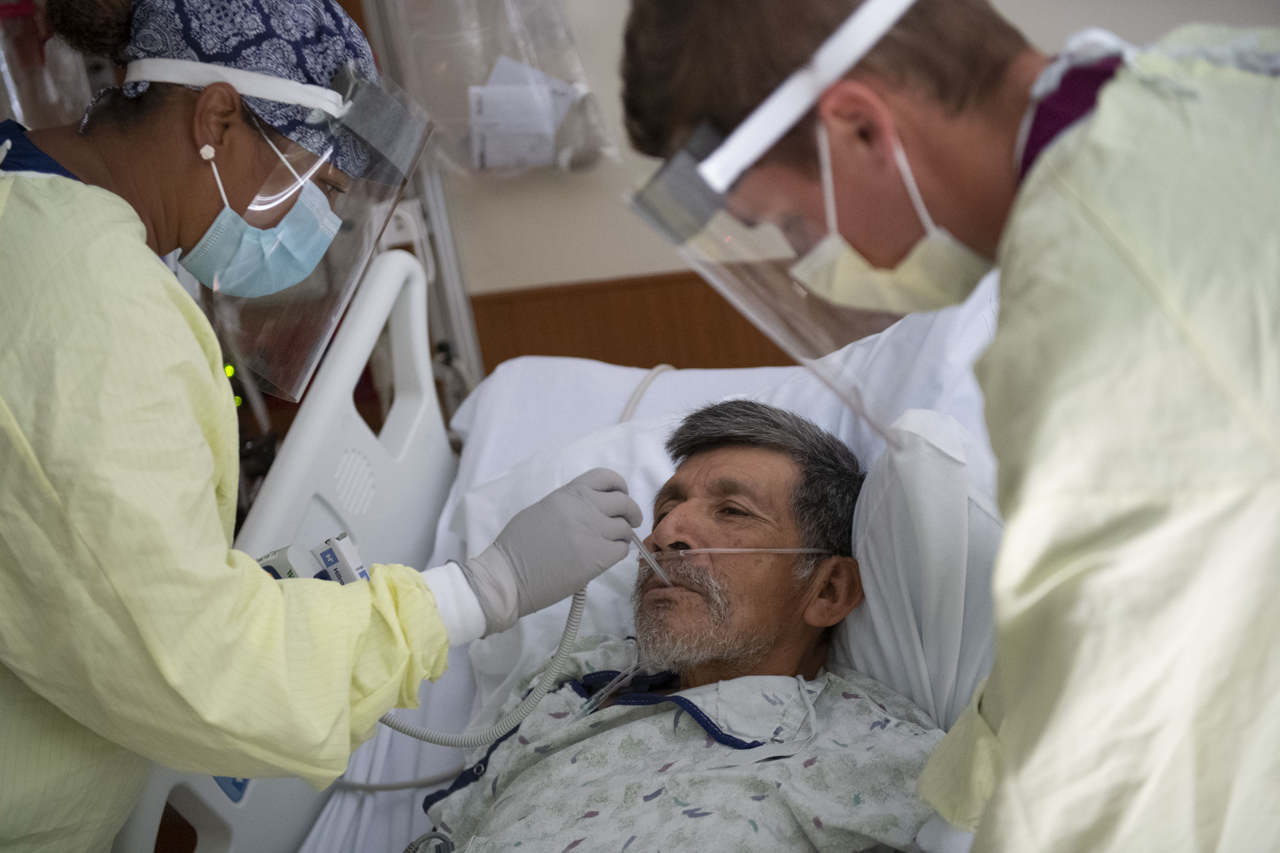
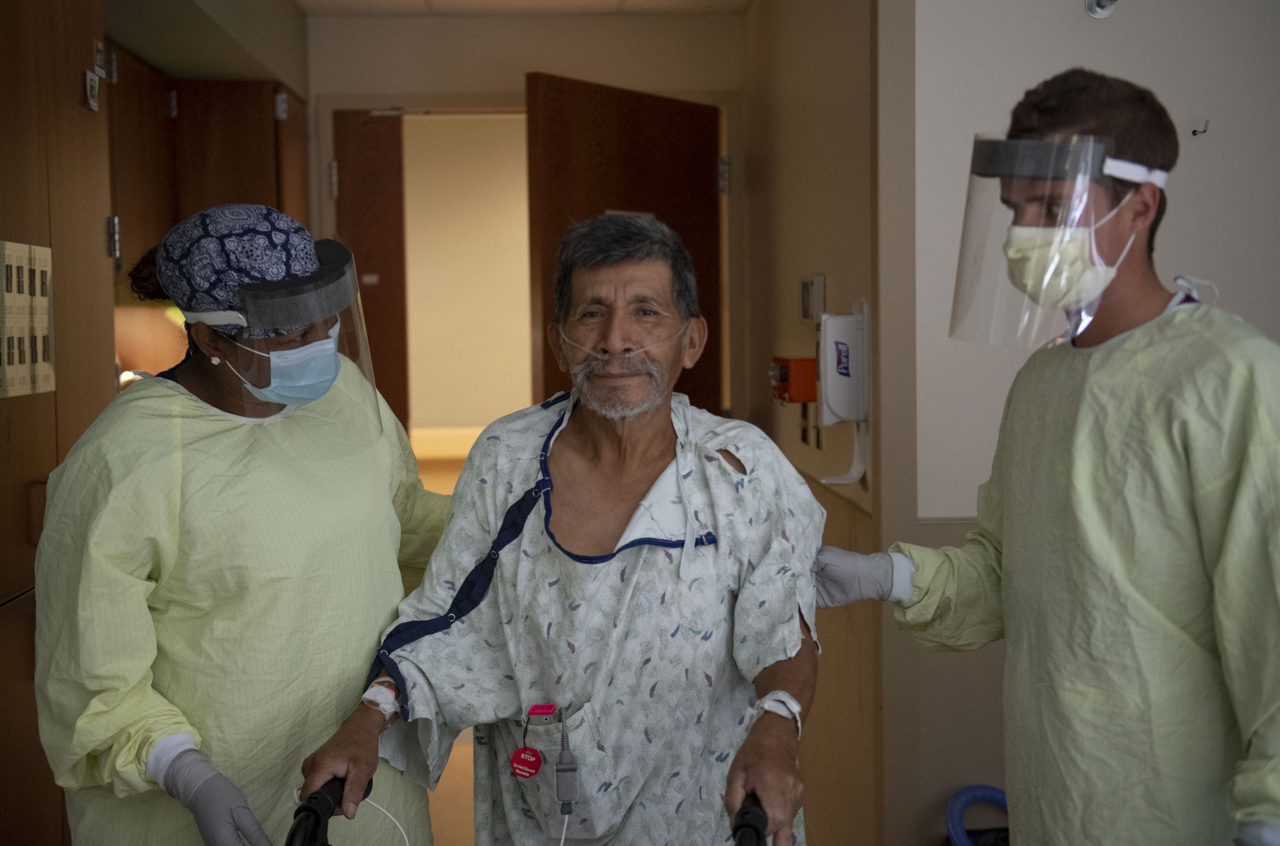
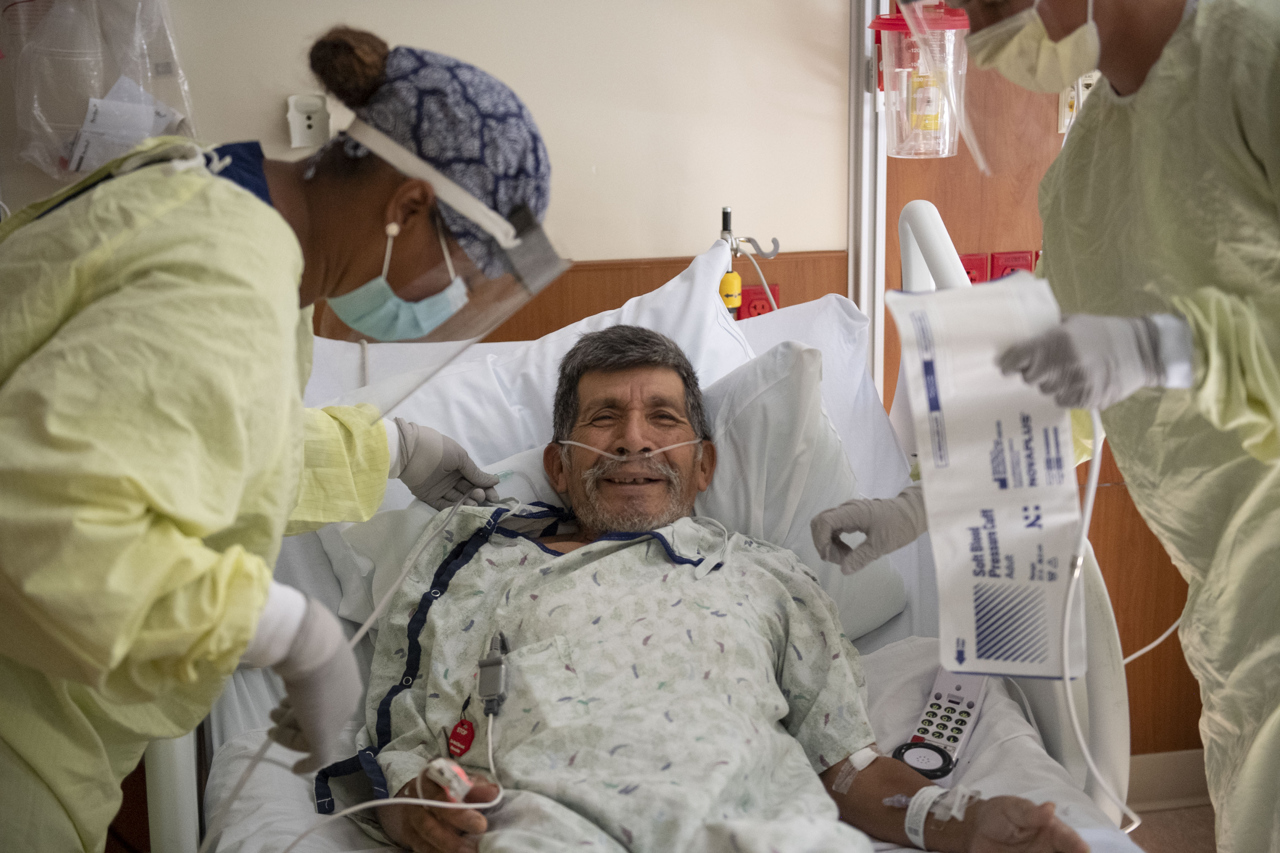
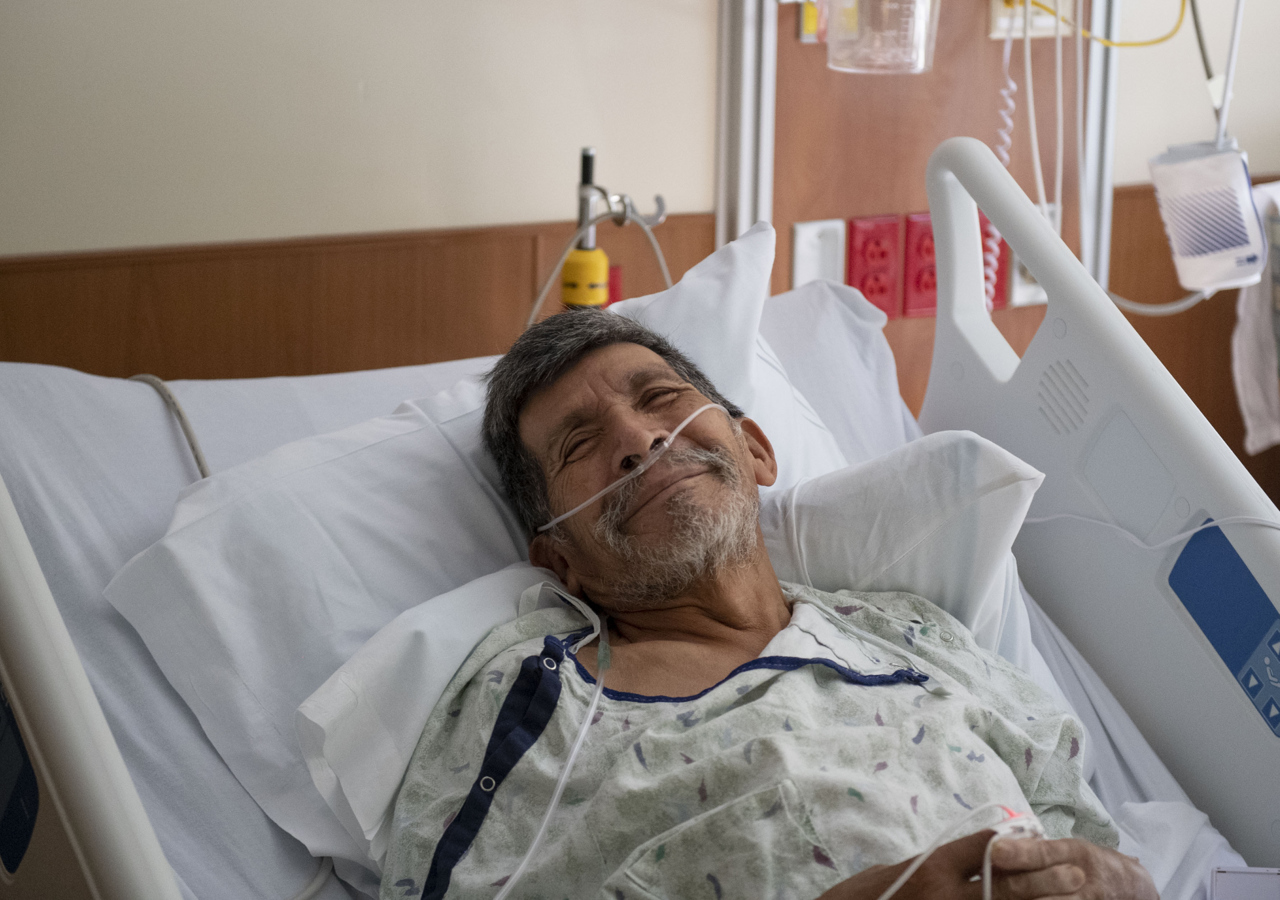
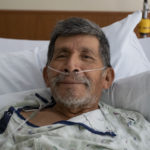
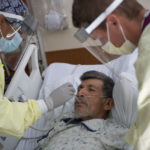
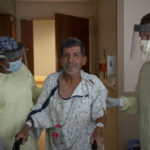
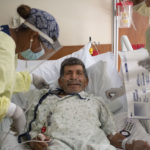
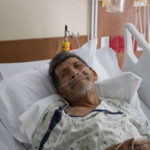

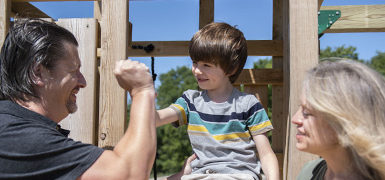 /a>
/a>
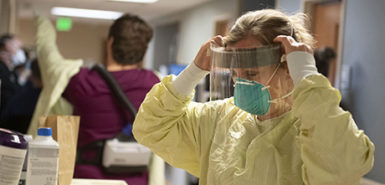 /a>
/a>
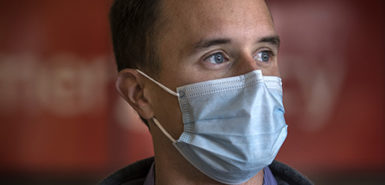 /a>
/a>
I’m a path lab tech. I wonder every day when I see those names on those tubes what the patient’s story is, and I can’t describe how sobering and relieving it is to know that someone I never met, yet personally helped, is getting better. I certainly cannot express my joy that Mr. Meija is improving, day by day.
Thank you for the work you do, Gen. You’re a big part of the caregiving team and a health care hero.